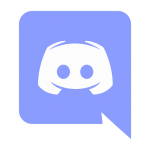VC - The United Network of Free Learners
Title The United Network of Free Learners
Date 21st Mar 2021 17:00 GMT
Host Jamesb
Duration 1.5h

Topic
Discussion about Jamesb's article The United Network of Free Learners, which is based on Ivan Illich's learning peer-matching network , covered in Deschooling Society book he authored in 1972. Jamesb coined such network as The United Network of Free Learners.
The goal of the United Network of Free Learners is to find the institutional inverse of the current system, uniting the learning networks and web of peers ideas from Illich with Piotr Wozniak's research on free learning, the pleasure of learning and spaced repetition.
JamesB
My notes
Free learning tools
Nowadays we have tools to make free learning more accessible and inexpensive than ever before. Although it is not free in the sense of out of cost, nut it is easily affordable. Free learning is actually cheaper than Formal Education, specially in college. Note that in some countries, there are no tuition fees for formal education as those are paid via taxes.
Free learning is technology-independent. In that sense, no one is forced to use SuperMemo or any other Spaced Repetition Software, as well as any operative system in particular. For communities, we are also not limited to use Discord. Each software design comes with pros and cons. Discord has the clear disadvantage to easily miss previous conversations as time passes. In that sense, a Discourse forum would be more suitable for that specific aspect.
Web of peers emergence
Ivan Illich anticipated that internet will power up the web of peers. PRR said that we cannot predict how free learners of the future do, they may have different tools. Some analogies he shared:
Discord was originally meant to be used for games, and it evolved with a broader direction. In animal evolution, feathers came for thermoregulation, and it turn out the animals can fly with them.
PRR
Communities
Ivan Illich description of the network implementation is kind of vague. Learning network is when its participants do not form an institution but sharing knowledge as individuals. Web of peers is matchmaking. Being match by the university instead of applying to it.
The main focus is on creative output. Creating you own business and not depend on getting a corporate job.
Jamesb suggest the idea to start a tiny network. With time, the network will increase the population to overwhelmingly quantity of people, which at that point the community can be split to niche-down it scope. I personally interpret it as a dendritic growth pattern. The more people out there in one particular niche, the more specialized communities will be formed.
The idea is that a free learner could join anytime any community with no restrictions according to his current areas of interests learn drive. These communities could interact with each other, for instance notifying some community-driven events from communities with overlapping scope.
Templates
Jamesb suggest the idea to have templates for discord servers to facilitate the creation of new servers with bots preloaded, etc. Anyone would be free to use the template and create a new free learner community about any topic or scope. The attendance to communities would be base don the user own volition to learn. No degrees, no certificates, no grades, no marks. No hierarchy or credentials but completely flat organization.
Community network
The main goal is find free learners with overlapping interests. This setting can be better than the typical university.
- creating seminars with experts
- debates as this one itself,
- networking
- apprenticeship: both master and apprentice benefit from the relationship.
Academic Experts are paid in university seminars as incentive, they won't get any benefit other than the money.
Lead by the example
This reminds me the slogan from fellow countryman Pau Gasol, a former NBA player who's motto is "lead by example. Interestingly, I learned the English expression from him.
We must lead by example for future generation of free learners.
We are the vanguard of free learning. We are still very few people. We are currently facing limitations for creating communities as the numbers are low, so to likelihood to find other free learners with overlapping interest is still hard, for example more niche interests in learning such as Jiu-Jitsu using SRS, very advanced mathematics, art style appreciation, etc.
If one free learner googles how to learn a specific subject too niche, he won¡t find resources. The main contribution to that is that the few people who mastered free learning don't publicly share his approach, methodology, strategy, wisdom acquired throughout the years of experience, etc. For the community to grow, we can learn in public.
Learn in public
With learning in public, one kills 3 birds with one stone:
- you learn more
- you teaching others
- you are getting exposure and marketing
